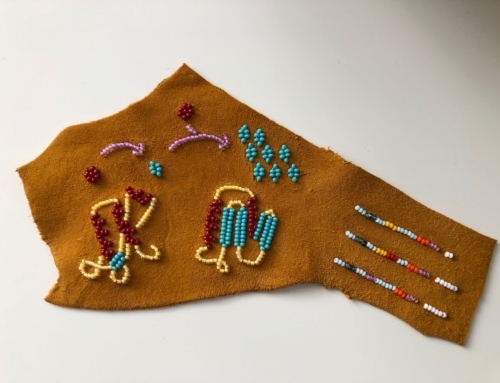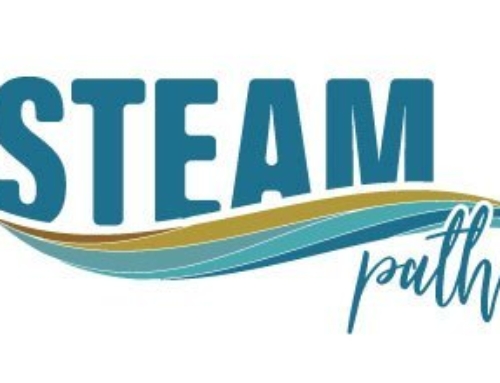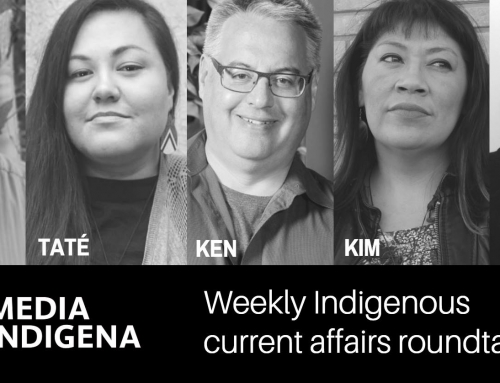
Description
A weekly roundtable about Indigenous issues and events in Canada and beyond. Hosted by Rick Harp.
The Host: Rick Harp
Born and raised in Winnipeg, Manitoba, a city located both at the heart of the continent and smack dab in the middle of nowhere, Rick Harp is a citizen of the Peter Ballantyne Cree Nation in what’s now known as northern Saskatchewan. While pursuing his BA as a student of political science at Carleton University in Ottawa, Rick got bit hard by the radio bug at the campus and community station, CKCU-FM. Thus begat a twenty-plus-year career in broadcast media, including national and regional stints at CBC Radio, the Aboriginal Peoples Television Network (APTN), and NCI-FM. A former Artistic/Managing Director of the Winnipeg Aboriginal Film Festival, he is a co-founder and president of the INDIGENA Creative Group (MI’s parent company).
In 2010, Rick was eager to chart his own course, launching the online magazine MEDIA INDIGENA, whose roster of original Indigenous voices offered an intelligent alternative to mainstream perspectives. Although the site’s output has ebbed and flowed over the years, its recent re-invigoration as a weekly podcast heralds a return to form as a lively, active source of ‘Interactive Indigenous Insight.’
Taté Walker
Taté Walker is a Lakota storyteller, feminist activist, blogger, photographer, and social services professional who promotes cultural competency and inclusion for professionals in the workplace. She received her Bachelor of Arts in English-Communications from Fort Lewis College in Durango, Colo., in 2004, and her Masters of Science in Administration from the University of South Dakota in 2013.
Her experience includes more than 12 years as a professional multimedia journalist. She is the editor of Native Peoples magazine, which provides an international audience with fair and accurate representations of Indigenous perspectives and experiences in ways that educate, entertain and empower through journalistic storytelling.She also spent eight years within the social services sector in the fields of juvenile justice, civil rights, and youth and family advocacy. This, combined with her personal, professional and academic research in the areas of Native American identity and stereotypes, poverty, health, and sexuality, make Taté a dynamic and powerful speaker.Taté’s writings can be found at her blog Righting Red. To read her Everyday Feminism articles, click here. Location: Phoenix, Arizona
October 2018
Ep. 138: Will Legal Cannabis Spark a Jackpot or Jeopardy for Indigenous Peoples?
This week, part two of our live show at the University of Winnipeg on the potential impacts of cannabis legalization on Indigenous peoples in Canada. Part one featured matters of jurisdiction and justice; this time 'round, we look at the way some dream of an economic jackpot while others foresee a nightmare of mental and moral jeopardy.
Ep. 137: Questions of Cannabis Justice and Jurisdiction for Indigenous Peoples
On this week’s program, recorded live in Winnipeg, we stir the pot now that Canada’s cannabis countdown is complete, making it only the second country in the world to legalize marijuana.
Ep. 136: Why Decarbonization and Decolonization Go Hand-in-Hand
Twelve years. According to a new report from the UN-backed Intergovernmental Panel on Climate Change (IPCC), that's how long we have to act both decisively and radically concerning the climate if we are to keep life viable for much if not most of humanity. Here's another number: 1.5 degrees Celsius. According to the same IPCC report, that’s the maximum increase in average world temperatures, relative to pre-industrial levels, that our planet can sustain before it will simply be unable to sustain us. That’s the bad news. But believe it or not, there is good news here too: many say keeping our planet below 1.5 is not only achievable, but realistic, though it will require a scale and scope of change that is simply unprecedented.
Ep. 135: What Does Indigenization of Education Really Mean?
This week, our special live-audience episode in Edmonton, where we discussed... Protocol Schmotocol: What one professor’s slide into another’s DMs on Twitter in search of help on a highly-sensitive subject can teach us about ethical research... 'Indigenous Renaissance': Just one of many pointed phrases in the victory speech of Maliseet musician Jeremy Dutcher at this year’s Polaris Music Prize ceremony. But as Indigenous artists continue to rack up recognition in the broader arts world, should we see their success as made-in-Canada, or made despite it? Education 'Indigenization': Confused by what different institutions mean by the term? Special guest Adam Gaudry (Associate Dean and Associate Professor, Faculty of Native Studies at the University of Alberta) walks us through what true reconciliation might look like in the academy.
September 2018
Ep. 131: Settler consternation over consultation with Indigenous peoples
Is a controversial pipeline now a pipe-dream? Canada’s Federal Court of Appeal has just ruled that plans to expand the Trans Mountain pipeline are to be put on hold until the government gets its act together on the potential impacts of greater oil tanker traffic on marine ecosystems and on its failure to meaningfully consult Indigenous peoples. But is this ruling a slam dunk? What’s to be made of the heated, even hysterical, reaction from some quarters? And where could or should things go from here?



